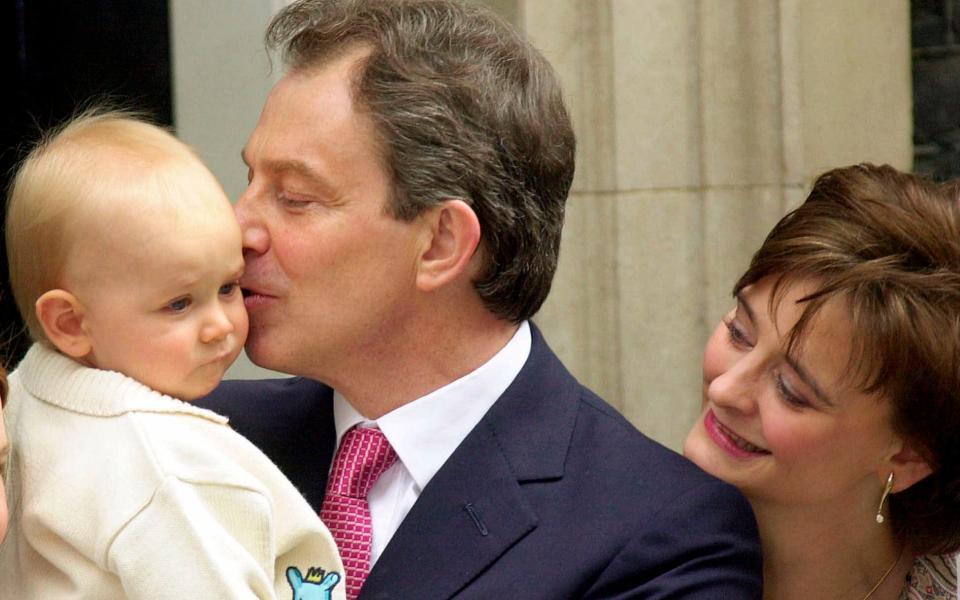18-year-olds to get up to £70,000 from Blairite baby funds invested at turn of the century

Thousands of 18 year olds will on Monday get access to accounts worth up to £70,000 under a Blairite policy of giving them £250 at birth, an analysis by IFS shows.
The IFS study shows eight per cent - one in 12 - will have access to accounts worth £5,000 or more and a further quarter (23 per cent) will have between £1,000 and £5,000.
Only eight per cent will have no wealth on reaching 18 - largely because their parents may have been unaware of the benefit.
That compares with 42 per cent having no wealth for those born just a year earlier and therefore who missed out on the child trust fund initiative launched by Tony Blair's government in 2002.
According to the IFS, the median average wealth among those eligible for the first Child Trust Funds (CTFs) was £1,200, compared with just £100 among those born slightly too early.
The first accounts went live in April 2005 and made £250 available to all those born from September 2002 with family and friends able to top up their children’s money to a maximum of £50,000 at 2002 prices.
Investments could now be worth up to £70,000. The 2006 Budget announced that an additional government contribution (again of £250 or £500) would be paid on the child’s seventh birthday in September 2009.
The policy was abolished by the coalition government, reducing public spending going forwards by an estimated £500 million a year.
The IFS report said: “In the absence of CTFs many young people have no, or very low levels of, financial wealth and therefore the policy will have made a substantial difference to the distribution of financial wealth of those aged 18.
“But – despite the rather grand claims made at the time the scheme was introduced – we should not expect to see large impacts on the proportions who continue in higher education, get onto the property ladder by a certain age or start their own business as a direct result of the CTF.
“There is only so much difference a CTF with an average balance of around £650 could realistically make and it was always far from clear that these accounts were the best use of public spending, not least because the public policy objective was never especially well articulated.
“Of course, we also don’t know the extent to which these funds in the child’s name will simply reduce the amount that parents transfer to their children in other ways. The effect on actual access to resources remains unknown.
“It could be, however, that the CTF was remarkably well timed in that a boost to the spending power of one group of young adults could be particularly welcome in the current context.
“The public heath response to the Covid-19 pandemic has had particularly severe impacts on young adults: their education has been disrupted and many of the jobs that disproportionately employ young people have been severely hit by the shutdown.
“For those turning 18 with a CTF, the funds could enable them to make an investment that assists them with their learning or be a welcome buffer to help them through some difficult months.
“The key question that remains open is how well those accessing their funds for the first time will spend their CTFs.”

 Yahoo Finance
Yahoo Finance 